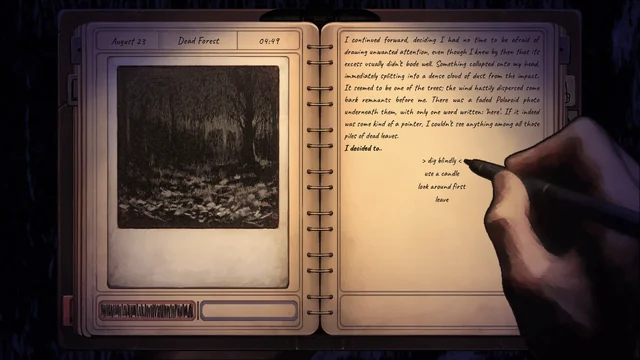The independent interactive novel development scene thrives with creative voices that often go unnoticed in the shadow of major studio releases. These passionate creators craft experiences that push boundaries, explore unconventional narratives, and deliver emotional depth that rivals—and often surpasses—their mainstream counterparts. Today, we celebrate these hidden gems and the visionary developers behind them.
The Spirit of Independent Creation
Independent interactive novel developers operate with a freedom that larger studios often lack. Unburdened by corporate expectations or market research demands, these creators pursue their artistic vision with unwavering dedication. This creative liberty manifests in experimental storytelling techniques, bold thematic choices, and innovative gameplay mechanics that mainstream developers might consider too risky.
The indie scene serves as a testing ground for narrative innovation. Here, developers experiment with unreliable narrators, non-linear storytelling, and interactive elements that blur the lines between literature and gaming. These experimental approaches often influence the broader industry, with successful indie techniques eventually finding their way into larger productions.
Spotlight: "Echoes of Tomorrow" by Luna Studios
Luna Studios, a two-person team based in Portland, created one of the most emotionally resonant interactive novels of recent years with "Echoes of Tomorrow." This science fiction narrative explores themes of memory, identity, and human connection through the lens of time travel mechanics that feel both fantastical and grounded in emotional reality.
What sets "Echoes of Tomorrow" apart is its innovative approach to choice consequences. Rather than traditional branching paths, the game employs a "memory cascade" system where decisions influence how the protagonist remembers past events, literally reshaping the narrative foundation as players progress. This mechanic serves both the science fiction premise and creates genuine uncertainty about what constitutes truth within the story.
In our conversation with Luna Studios co-founder Sarah Mitchell, she explained their approach: "We wanted players to experience the disorientation of memory manipulation firsthand. Traditional choice systems felt too clean, too certain. Real memory is messy, subjective, and constantly being rewritten by new experiences."
The Cultural Tapestry: "Grandmother's Garden" by Roots Interactive
Roots Interactive, founded by first-generation immigrant developers Priya Sharma and Chen Wei, crafted "Grandmother's Garden" as a love letter to intergenerational storytelling traditions. This interactive novel weaves together folklore from multiple cultures through the framework of a young woman discovering her grandmother's hidden journals.
The game's strength lies in its authentic portrayal of cultural heritage and the immigrant experience. Rather than relying on surface-level representations, the developers interviewed dozens of community elders to ensure their portrayal respected the complexity and nuance of traditional storytelling. The result is a narrative that feels both deeply personal and universally relevant.
"Grandmother's Garden" employs a unique mechanic where players unlock stories by tending to a virtual garden, with each plant representing different cultural traditions. As the garden grows, so does the protagonist's understanding of her heritage. This metaphorical gameplay creates a meditative experience that mirrors the gradual process of cultural discovery.
Psychological Horror Reimagined: "Fractured Reflections" by Midnight Canvas
Solo developer Alex Rodriguez, working under the banner of Midnight Canvas, has redefined psychological horror in interactive novels with "Fractured Reflections." This unsettling narrative explores themes of identity dissociation and reality distortion through innovative use of unreliable interface elements and narrative techniques that make players question their own perceptions.
The game's horror emerges not from jump scares or grotesque imagery, but from subtle inconsistencies that accumulate over time. Text occasionally shifts when players aren't looking directly at it. Dialogue options appear and disappear. Save files become corrupted in ways that serve the narrative. These techniques create genuine unease while advancing the story's themes about fractured mental states.
Rodriguez draws inspiration from his background in cognitive psychology, explaining: "Traditional horror relies on external threats. I wanted to explore the horror of losing trust in your own perception. When players begin doubting what they're seeing and reading, they experience something closer to actual psychological distress."
Romance Redefined: "Constellation Hearts" by Stellar Narratives
The three-person team at Stellar Narratives challenged romance interactive novel conventions with "Constellation Hearts," a space exploration narrative that treats romantic relationships as complex, evolving partnerships rather than conquest objectives. Set aboard a generation ship traveling to distant stars, the story spans decades of character development and relationship evolution.
Unlike traditional romance games that focus on winning affection through correct choices, "Constellation Hearts" presents relationships as ongoing negotiations requiring compromise, growth, and mutual support. Characters change significantly over the game's timeline, and relationships that begin as romantic might evolve into deep friendships or professional partnerships based on how characters develop.
The game's time-skip mechanic allows players to experience relationship evolution across years and decades, showing how partnerships adapt to changing circumstances. This long-term perspective creates emotional investment that extends beyond initial attraction to encompass the full complexity of human connection.
Accessibility and Innovation: "Silent Voices" by Inclusive Interactive
Inclusive Interactive, founded by deaf developer Maria Santos, created "Silent Voices" as both an engaging narrative and a showcase for accessibility innovation in interactive novels. The game tells the story of a deaf protagonist navigating a hearing world while exploring themes of communication, community, and identity.
The game's interface innovations extend beyond traditional accessibility features. Visual elements convey audio information through creative use of color, animation, and symbolic representation. Dialogue scenes employ dynamic text formatting and visual cues that mirror the experience of lip reading and sign language communication.
"Silent Voices" proves that accessibility considerations can enhance rather than limit creative expression. The game's unique presentation methods have influenced other developers to reconsider how they convey information, leading to more inclusive design practices across the indie interactive novel community.
The Community Connection
Independent interactive novel developers thrive through community connections that larger studios often lack. Online forums, development communities, and crowdfunding platforms create direct relationships between creators and players. This intimacy allows for rapid iteration based on player feedback and creates passionate fanbases invested in developers' continued success.
The collaborative spirit extends to cross-promotion and resource sharing. Indie developers frequently collaborate on projects, share technical knowledge, and promote each other's work. This supportive ecosystem enables small teams to achieve production values and reach that would be impossible working in isolation.
Supporting Independent Voices
Discovering and supporting independent interactive novel developers requires active engagement from players. Platforms like itch.io, Steam's indie sections, and specialized interactive novel communities serve as gateways to these hidden gems. Reviews, social media promotion, and direct financial support through purchases and crowdfunding help sustain these creative voices.
The investment in independent interactive novels yields rewards beyond entertainment. Supporting indie developers means encouraging artistic risk-taking, cultural diversity, and narrative innovation that enriches the medium as a whole. Each purchase or positive review contributes to an ecosystem where creative vision can flourish without compromise.
These hidden gems remind us that the most compelling stories often come from unexpected places. Independent interactive novel developers, working with limited resources but unlimited passion, continue to push the boundaries of interactive storytelling and create experiences that linger in players' minds long after the final credit rolls. Their voices deserve not just recognition, but celebration for their continued contributions to the art of interactive narrative.


